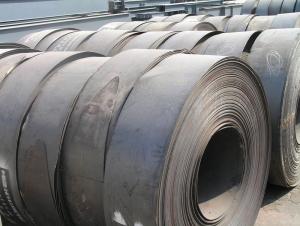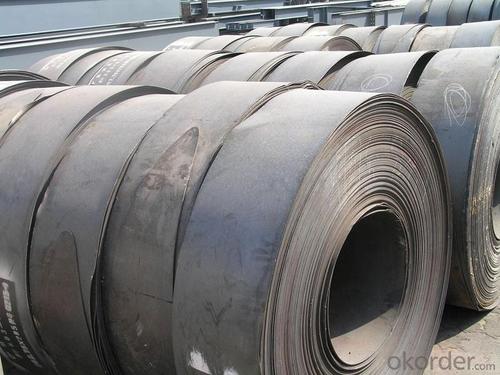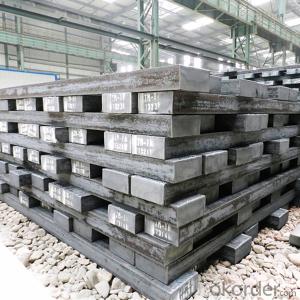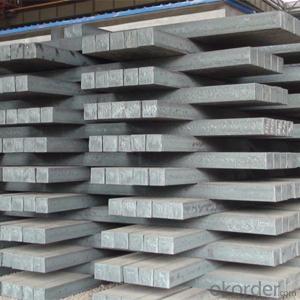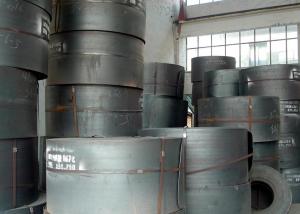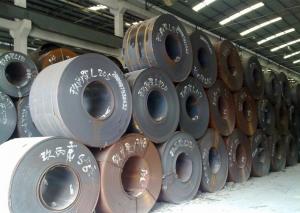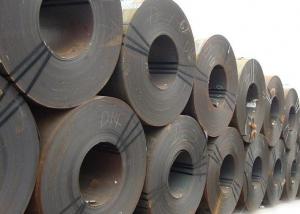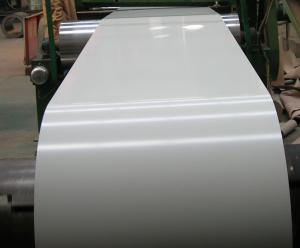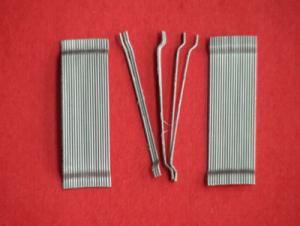High Quality Hot Rolled Steel GB, 14mm-60mm
- Loading Port:
- China Main Port
- Payment Terms:
- TT or L/C
- Min Order Qty:
- 50 tons m.t.
- Supply Capability:
- 50000 Metric Tons Per Month m.t./month
OKorder Service Pledge
OKorder Financial Service
You Might Also Like
Specification Of the Hot Rolled Steel GB,14mm-60mm
|
|
Thickness |
Width |
Length |
Coil Inside Diameter |
|
HOT ROLLED STEEL COIL |
1.50~25.0mm |
600~2000mm |
|
762mm |
|
HOT ROLLED STEEL STRIP |
1.50~20.0mm |
30~720mm |
|
762mm |
|
HOT ROLLED STEEL PLATE |
6.00~700mm |
500~4500mm |
4000~18000mm |
|
|
HOT ROLLED STEEL SHEET |
1.20~25.0mm |
50~2000mm |
0~18000mm |
|
|
HOT ROLLED STEEL CHEQUERED |
1.40~10.0mm |
900~1500mm |
0~18000mm |
|
Standard &Grade of Hot Rolled Steel GB,14mm-60mm
|
|
JIS |
ASTM |
SAE |
EN |
|
Commercial Quality |
G3131 SPHC |
A569 A635 A659 A1011 CS Type A, B, C |
1006~1025 |
10111 DD11 |
|
Drawing Quality |
G3131 SPHD |
|
1006~1010 |
10111 DD12 |
|
Deep Drawing Quality |
G3131 SPHE |
A622 A1011 DS Type A, B |
1006~1010 |
10111 DD13 DD14 |
|
General Structure (T.S.<490N/mm2) |
G3101 SS330 SS400 G3106 SM400A G3132 SPHT1 SPHT2 SPHT3 |
A36 A283 GR.C A570 GR.30~40 A1001 SS GR.30~40 |
1010~1025 |
|
|
General Structure (T.S.≥490N/mm2) |
G3101 SS490 G3106 SM490A SM490YA G3132 SPH4 |
A570 GR.45~50 A607 GR.45~70 A1011 SS GR.45,50 A1011 HSLAS GR.45~70 |
J1392 050X |
|
Definition of Hot Rolled Steel GB,14mm-60mm
Rolled to its final dimensions while it’s hot enough to scale, our hot-rolled steel is an amalgamation of the various qualities of steel. It can be in the form of plates, sheets and coils. Our Hot-Rolled Steel Sheets and Coils are applied to a wide range of uses such as automobile, electrical appliance, machinery manufacturing, container manufacturing, shipbuilding, bridge, pipeline, and receive high acclaim from our customers for its excellent quality.
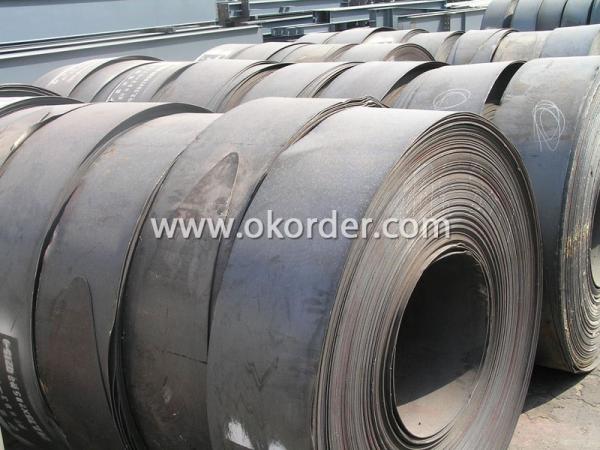
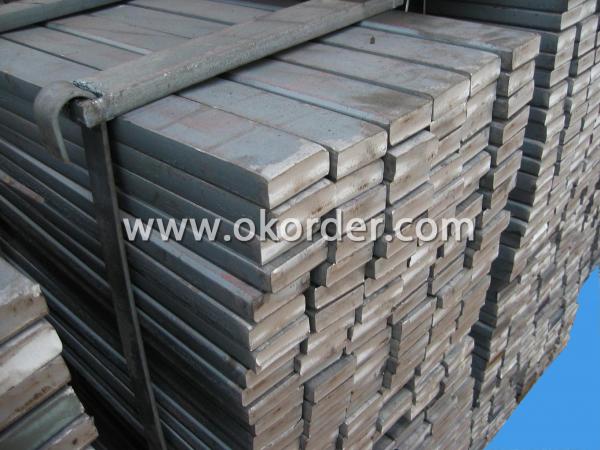
Usage/Application Of Hot Rolled Steel GB,14mm-60mm
As raw material for:
Container &Pipe Production
Carbon Structural Steel
Low Alloy Steel
High Quality Carbon Structural Steel
Atmospheric Corrosion Resistant Steel
Low Carbon Steel (Commercial Quality, Drawing Quality, Deep Drawing Quality)
Packaging & Delivery of Hot Rolled Steel GB,14mm-60mm
The packing of coils consists of anti-damp paper, PVC film, hardboard paper, steel box, strapped with steel strips, fitted with locks and edge protectors and guarantees the optimal condition of the delivered goods. Each coil can be additionally fitted with wooden/steel skids(eye to the side) or wooden pallets(eye to the sky).
Bulk shipment packed with steel belt.
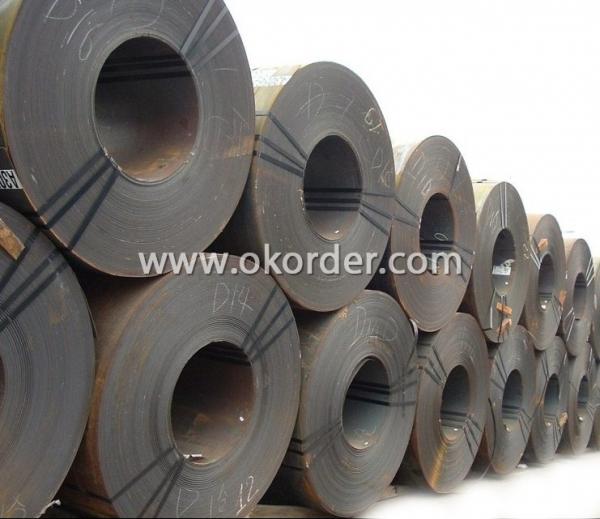
- Q: How are steel products used in the construction industry?
- Steel products are widely used in the construction industry for various purposes such as structural components, reinforcement, and cladding. They are commonly used to construct buildings, bridges, and other infrastructure due to their high strength, durability, and versatility. Steel beams, columns, and frames provide the structural support needed for large-scale construction projects, while steel reinforcement bars enhance the strength and stability of concrete structures. Additionally, steel sheets and panels are used for cladding, roofing, and siding, offering protection against weather conditions and adding aesthetic appeal to buildings.
- Q: How do steel products contribute to the recycling industry?
- Steel products contribute to the recycling industry by being highly recyclable themselves. Steel can be melted down and reused multiple times without losing its properties, making it an ideal material for recycling. This helps reduce the demand for raw materials and energy consumption, conserving natural resources and reducing greenhouse gas emissions. Additionally, steel recycling reduces the volume of waste that ends up in landfills, promoting a more sustainable and circular economy.
- Q: How does steel pipe threading work?
- Steel pipe threading is a process where a steel pipe is cut with a specialized tool to create external threads, which allows for the connection of fittings and other pipes. The threading tool, typically a die, is applied to the pipe, and as it is rotated, it gradually cuts grooves into the pipe's surface, forming the threads. This threading process ensures a secure and leak-free connection when joining pipes together.
- Q: How is steel used in the production of tools and machinery?
- Steel is widely used in the production of tools and machinery due to its high strength and durability. It is commonly employed to manufacture various components, such as blades, gears, shafts, and frames, that require resistance to wear, deformation, and heavy loads. The hardness and toughness of steel make it ideal for cutting, drilling, and shaping materials. Additionally, its ability to be easily machined and welded allows for customization and assembly of complex machinery. Overall, steel's properties make it an essential material in the construction of tools and machinery, ensuring their reliability and efficiency.
- Q: How is steel used in the construction of theme parks and recreational facilities?
- Steel is a crucial material in the construction of theme parks and recreational facilities due to its strength, durability, and versatility. It is used for various structural elements such as roller coaster tracks, support beams, and framework for large-scale attractions. Steel's ability to withstand heavy loads and extreme weather conditions ensures the safety and stability of these structures, making it an essential component in creating thrilling and engaging experiences for visitors.
- Q: What are the different types of steel wire mesh and grids available?
- There are several different types of steel wire mesh and grids available, including welded wire mesh, woven wire mesh, expanded metal mesh, and perforated metal mesh. Each type has its own unique characteristics and is used for various applications such as filtration, reinforcement, security, and separation.
- Q: What are the different types of steel bolts and their uses in the automotive aftermarket?
- There are several types of steel bolts commonly used in the automotive aftermarket, including hex bolts, flange bolts, carriage bolts, and specialty bolts like wheel bolts and exhaust manifold bolts. Hex bolts are the most commonly used and are suitable for a wide range of applications. Flange bolts have a built-in washer-like flange that distributes the load and provides extra strength. Carriage bolts have a smooth, rounded head and are often used in applications where a smooth finish is desired. Specialty bolts like wheel bolts are specifically designed for securing wheels to the vehicle, while exhaust manifold bolts are used to connect the exhaust manifold to the engine block. Each type of steel bolt has its own specific use and is selected based on the requirements of the automotive aftermarket applications.
- Q: What are the different types of steel products used in the manufacturing of kitchen appliances?
- The different types of steel products commonly used in the manufacturing of kitchen appliances include stainless steel, carbon steel, and galvanized steel. Stainless steel is the most popular choice due to its corrosion resistance, durability, and aesthetic appeal. Carbon steel is often used for cookware due to its excellent heat conductivity and durability. Galvanized steel is occasionally used for components that require additional protection against rust and corrosion.
- Q: What are the different types of steel meshes and their applications?
- There are several different types of steel meshes with various applications. Some common types include welded wire mesh, expanded metal mesh, and woven wire mesh. Welded wire mesh is frequently used in construction, agriculture, and fencing due to its strength and durability. Expanded metal mesh is often utilized for grating, walkways, and filters due to its high load-bearing capacity and ventilation properties. Woven wire mesh is commonly used in industries such as mining, filtration, and security due to its versatility and ability to withstand heavy-duty applications. Overall, steel meshes serve diverse purposes and are chosen based on their specific properties and intended applications.
- Q: What are the advantages of using steel in the construction of sports stadiums?
- There are several advantages of using steel in the construction of sports stadiums. Firstly, steel is a durable and strong material, which provides the necessary structural integrity and stability required for large-scale constructions like stadiums. Secondly, steel is highly versatile and allows for creative and innovative architectural designs. It can be easily shaped and manipulated to create unique and visually appealing structures. Additionally, steel is a cost-effective option as it is readily available and can be prefabricated off-site, reducing construction time and labor costs. Lastly, steel is also a sustainable choice as it is recyclable, minimizing waste and environmental impact.
1. Manufacturer Overview
| Location | Shandong, China |
| Year Established | 1958 |
| Annual Output Value | |
| Main Markets | Mid East Northern Europe North America Eastern Asia Africa Eastern Europe Southeast Asia Western Europe Southern Europe |
| Company Certifications | ISO 9001 |
2. Manufacturer Certificates
| a) Certification Name | |
| Range | |
| Reference | |
| Validity Period |
3. Manufacturer Capability
| a) Trade Capacity | |
| Nearest Port | Tianjin; Qingdao |
| Export Percentage | 80% |
| No.of Employees in Trade Department | 100People |
| Language Spoken: | English; Chinese; Korean |
| b) Factory Information | |
| Factory Size: | |
| No. of Production Lines | |
| Contract Manufacturing | OEM Service Offered; Design Service Offered |
| Product Price Range | Average |
Send your message to us
High Quality Hot Rolled Steel GB, 14mm-60mm
- Loading Port:
- China Main Port
- Payment Terms:
- TT or L/C
- Min Order Qty:
- 50 tons m.t.
- Supply Capability:
- 50000 Metric Tons Per Month m.t./month
OKorder Service Pledge
OKorder Financial Service
Similar products
Hot products
Hot Searches
Related keywords
